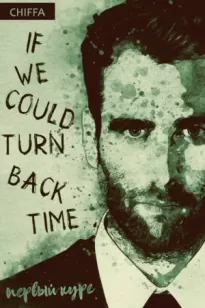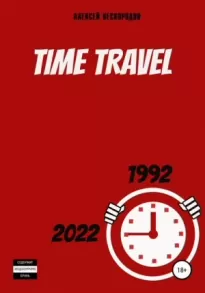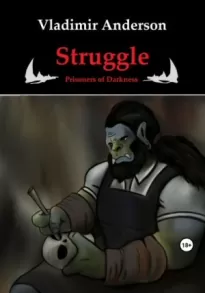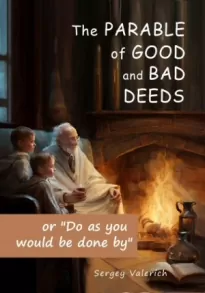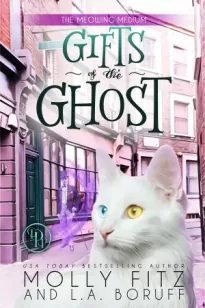TWICE IN TIME
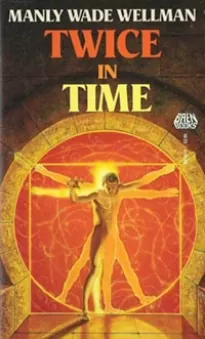
- Автор: Мэнли Веллман
- Жанр: Фантастика
Читать книгу "TWICE IN TIME"
CHAPTER II The First Half Hour
At those words, all fell silent and gazed at me in awe. It seemed unbelievable, but all this was happening to me in the back yard of—yes, of Tomasulo's tavern. It was a changed back yard, though, dominated by a simpler, newer building.
I seemed to have trouble with my memory. It lagged, as though I had been stunned. And the differences helped to confuse me. Here were no flagstones, no clutter of innkeeper's jetsam—only a level stretch of turf, hedged around with some tall, close bushes of greenery. And my audience was grouped below rather than before me. I seemed to be standing high on a platform or pedestal of cut and mortared stone.
The altar of the ox-sacrificing cult! I had made the journey back through time, from the Twentieth Century that just now hung dim and veiled in my mind, like something I had known in childhood instead of brief seconds ago.
"Kneel," intoned the same voice that had hailed me as a miracle.
At once the group before me dropped humbly down. There were a dozen or so, of both sexes, and most of them shabbily dressed. The men wore drab or faded blouses and smocks, with patched hose on their legs, and the women were untidily tricked out in full skirts, bodices, and coifs or caps. Men and women alike wore long hair, and several were as blond as myself.
I was quite evidently taken for some strange manifestation of the god or spirit they worshipped. Realizing this, I felt that I had an advantage. I sprang lightly down from the altar.
"Do not be afraid," I told them, in my best Italian. "Rise up. Which is the chief among you?"
They came to their feet, in a shy group around me, and the tallest of them moved forward.
"I am master of this coven," he murmured, respectfully, but fixing me with shrewd, calculating eyes. "What is your will?"
"First, lend me that red cloak of yours."
He quickly unclasped it from about his throat. I draped it over my nakedness, and felt more assured before this mixed audience.
"Now," I continued, "hark you all! Did you worship here because you sought a miraculous gift from heaven?"
"Not from heaven, exactly," said the man who had given me his cloak.
He was the best clad of the entire group, wearing plum-colored hose and a black velvet surcoat that fell to his knees. His narrow waist—he was an inch taller than I, and as gaunt as a rake—was clasped by a leather belt with a round silver buckle. His sharp face was decorated by a pointed beard of foxy red, and above this jutted a fine-cut long nose. His eyes, so intent upon me, were large and deep, the wisest eyes I had ever seen, and his broad brow, from which the hair receded as though beginning to wear away, was high and domed.
There was something about him to suggest Shakespeare—Shakespeare's face, that is, much more alert and enigmatic than generally pictured, and set upon the body of Ichabod Crane. I described him thus carefully because of the impression he made upon me then, and because of the importance he has since had in my life and career.
"Not from heaven," he said again. "Rather from our Father in the Lowest." He gestured downward, with a big but graceful hand. "Why do you ask? Have you not been sent by him?"
This was a definite challenge, and I made haste to simulate a grasp of the situation. With an effort I remembered the study I had made of this very incident, the prayer of a sorcerers' cult for rain, on April 30, 1470.
"I am sent as your friend," I announced. "This ox, which you have offered—"
I gestured behind me toward the altar, then turned to look. The stones were bare, save for a slight, dark moisture. I paused, thought quickly, and went on:
"This ox which you have offered has been transmuted into me, so that I may be your friend and guest."
There was more truth in that than my interrogator in the velvet surcoat thought, I told myself triumphantly. But I did not know him yet. I also congratulated myself that there had been an entire ox, for my time reflector seemed to have left little of it after the process of reassembling.
"As to the rain," I finished, "that will come, doubt it not." For I had seen, on the horizon beyond the lowest stretch of hedge, a lifting bank of cloud.
"Thank you, O messengerl" breathed an elderly cultist at my side, and "Thank you, thank you!" came prayerfully from the others.
The lean spokesman bowed a little, but I could discern the hint of a growing mockery in those deep, brilliant eyes.
"Your visit is far more than we poor worshipers had the presumption to hope for," he said silkily, "Will you suffer these servants of the true belief to depart? And will you come with me to my poor dwelling yonder?"
I nodded permission, and he spoke briefly in dismissal of the others. They retired through a gap in the hedge, respectfully, but without the awe a miracle might be thought to call forth. I was surprised, even a little piqued. Then the rationalization came to me. This was the Fifteenth Century, and the people were more naive, more credulous. They had come to this strange ceremony in expectation of a wonder. And when it came—even when there was more than they hoped for, as my volunteer host had suggested—it did not prostrate them with emotional amazement. I was strange, but I was understandable.
When the last had departed, I faced the gaunt man. I have compared his body to that of Ichabod Crane, but he was surer of his long limbs than the schoolmaster of Sleepy Hollow. Indeed, he seemed almost elegant, with his feet planted wide apart and one big hand bracketed upon his bony hip.
"How are you called?" I asked him.
"My name is Guaracco," he said readily. "The master, I say, of the coven which has just done worship here. But, if you are truly a messenger from him we delight to serve, why do you not know these things without my telling?"
A sneer was in his voice, and I felt that I had best establish my defenses.
"Ser Guaracco," I addressed him bleakly, "you will do well to show courtesy to me. I did not come here to be doubted."
"Assuredly you did not," he agreed, with a sort of triumphant good humor that yet made me uneasy. "And now, once more, will you come with me into my home?"
He made another of his graceful gestures, this time toward the back door of the stone house that I knew for Tomasulo's inn—at least for what would one day be Tomasulo's inn. I nodded agreement, and we walked together across the turf to the door.
That thought of mine—for what would one day be Tomasulo's inn. ... It behooved me to learn a new procession of thought, one that came two ways to the present. I must remember, not only from the past, but from that future, four centuries off.
I clarified that puzzle by calling to mind a fragment of conversation in "through the Looking-Glass." It read like this, I remembered: "It's a poor sort of memory that only works backwards." The White Queen had said that and, later: "Sometimes I've believed as many as six impossible things before breakfast." I had never before realized the deep scientific philosophy of that delightful story. Meanwhile, it might help clear the fog that hung so persistently to some chambers of my mind.
My new acquaintance tapped softly on the door, which opened at once. Upon the threshhold stood a tiny male creature in a dark gownlike garment. He was no larger than a child of nine, and the bright face upturned to us might have seemed sweet if it had not reminded me of Guaracco's.
"Is this your son?" I asked my host.
He laughed quietly.
"Yes, Ambassador of the Powers Below. In some degree this is my son."
The little figure stood courteously aside, and let us step into a dark, narrow corridor. Guaracco's hand touched my arm through the folds of the borrowed cloak, and I allowed myself to by guided down the passageway and into a room beyond.
Here were dark, decent hangings, a thick carpet, chairs, a settee, and a table on which lay some bulky and ancient-looking books. A single fat candle in a bronze scone illuminated the room, for there was no window; only a barred air-hole at the top. Guaracco invited me to sit down, with a sweep of his hand toward the settee.
"I will offer you refreshment," he announced, and clapped his hands.
From behind the hangings, evidently from a shadowed compartment beyond, darted a figure as small as the one that had admitted us to the house. But this one was hunched and misshapen, with a pinched, aged-looking face set in the loose, high collar of its gown. In its long, knob-knuckled hands was held a tray, with a silver flagon and two goblets of blue glass. This tray was set upon the table, then this small figure made a quick exit without looking back. I had been unable to judge sex or age in the brief moment of the small one's presence.
Guaracco carefully poured red wine from the flagon.
"You do not ask," he commented smoothly, "if that was another of my sons."
I made no comment, for I could think of none. Instead of growing clear, my memory was becoming more scrambled, and it worried me. There was also a definite taste of menace in the atmosphere. Guaracco lifted one of the goblets and held it toward me.
"He was as much my son as the other," he said. "Take this wine, Ambassador. I daresay you will never drink another draught like it."
I took the goblet, and he lifted the other.
"I give you a toast," he said, in a voice that suddenly rang with fierce mockery. "Sir, your immediate transportation to the floor of hell—the very place from which you lyingly claim to be sent!"
It was too much. I rose quickly, and set down the goblet on the table. My left hand, with which I am quickest and handiest, doubled into a fist.
"Ser Guaracco," I said harshly, "I have had enough of your discourtesy. You doubt my being of another world, even though you saw me appear from the very substance of the ox upon the alter, so—"
"Enough of that falsehood," he interrupted.
Quickly but delicately he set his goblet down beside mine. Again he struck his palms together, twice.
From the entrance to the passage darted the pretty little keeper of the doorway. From the opening behind the hangings sprang the withered-looking bringer of wine. Each held a long, thin blade, curved like a scimitar and plainly as keen as a razor. They closed quickly in upon me, their eyes glittering cruelly.
Guaracco laughed calmly, the laugh of one who makes the final move in a winning game.
"Before my familiars cut you into ounces," he said, "you had best make confession of your motives."
"Confession?" I echoed, amazed.
"Exactly. Oh, miracles have happened upon that altar before this—but it was I, Guaracco, who taxed my brain and my machine-shop to prepare them. But you come without my knowledge or leave. I do not allow rivals for my power, not even where it concerns those few foolish witch-worshippers. Out with your story, impostor, and at once!"

